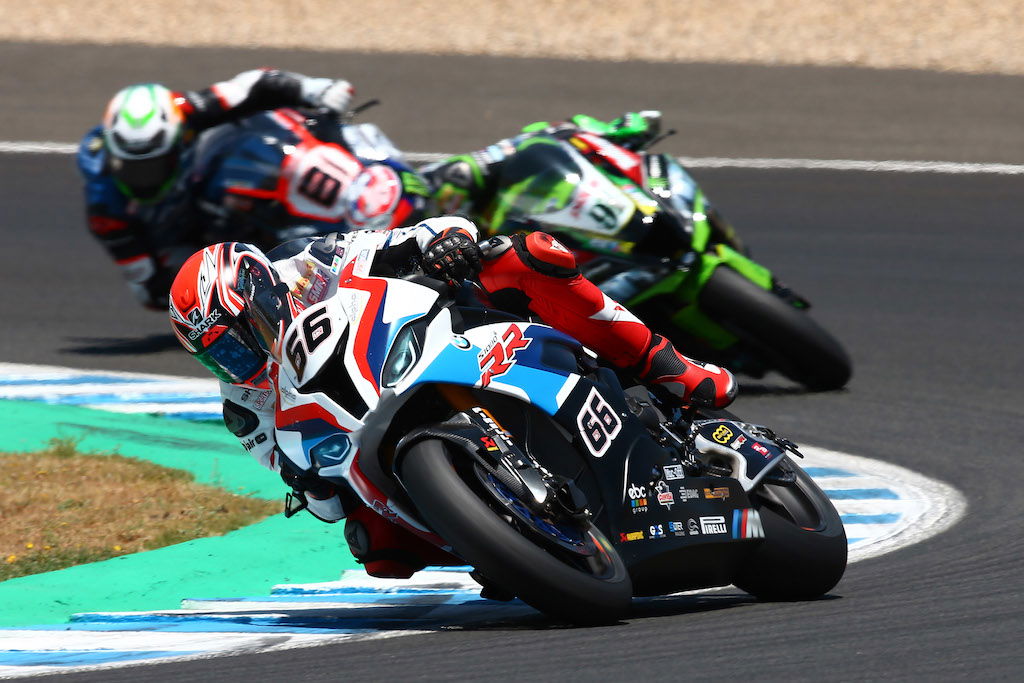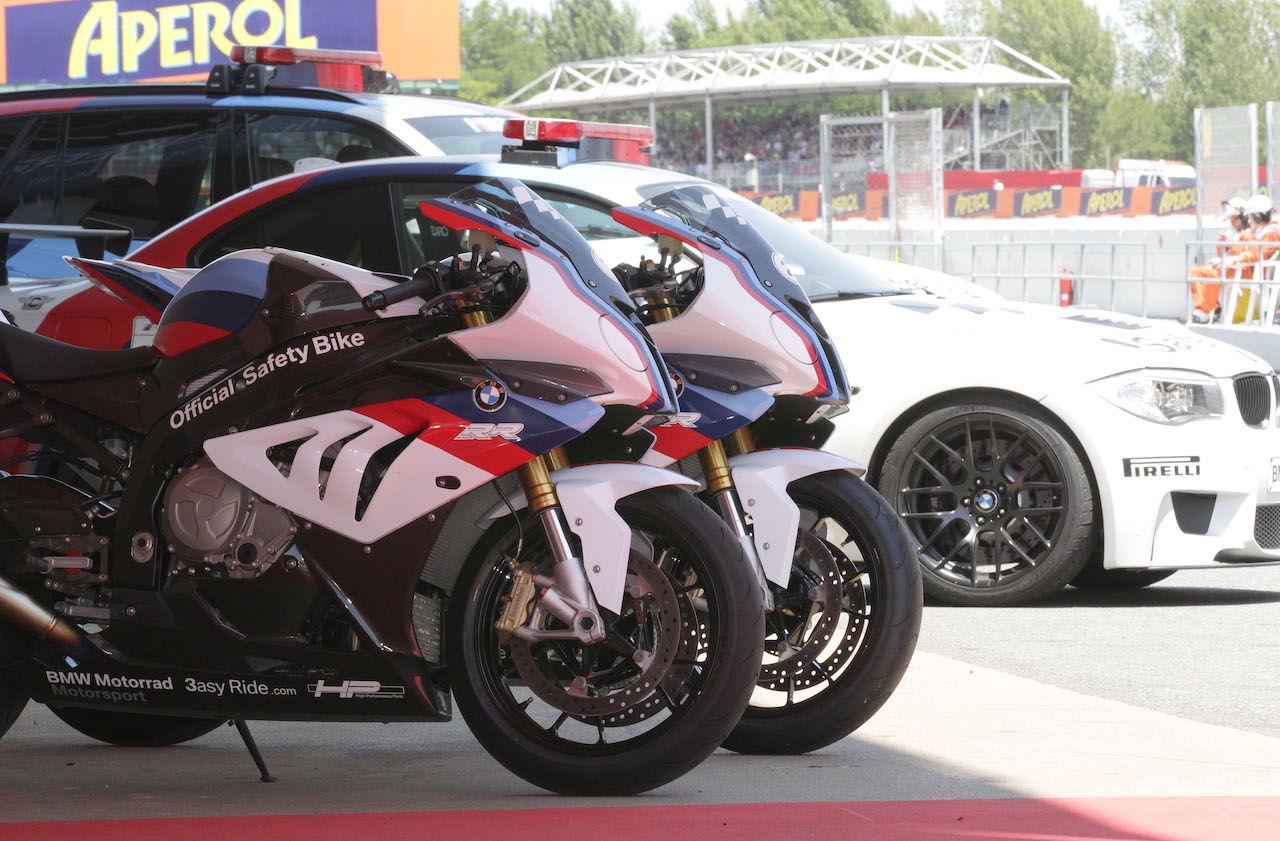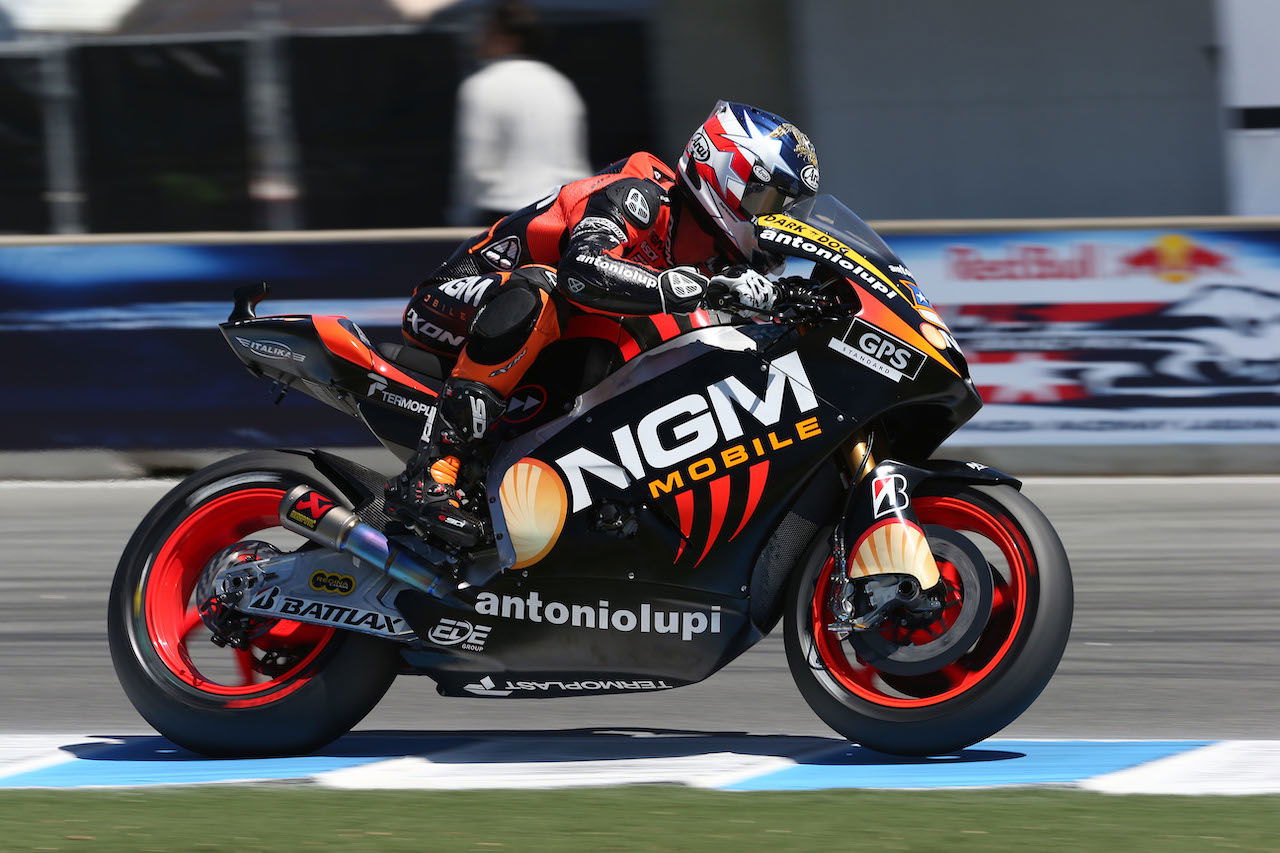Why doesn’t BMW compete in MotoGP?
IT'S THE PINNACLE of motorcycle racing, a showcase for technology and one of the world’s most recognised brand-conscious sports… so why does BMW – one of the biggest, most technologically advanced, brand-savvy manufacturers – choose not to compete in MotoGP?
It’s a question that rises periodically, not least right now as it launches the second-generation of its internationally lauded S1000RR Superbike, one that shows BMW can comfortably mix it with the best when it comes to flagship machinery.

IT'S THE PINNACLE of motorcycle racing, a showcase for technology and one of the world’s most recognised brand-conscious sports… so why does BMW – one of the biggest, most technologically advanced, brand-savvy manufacturers – choose not to compete in MotoGP?
It’s a question that rises periodically, not least right now as it launches the second-generation of its internationally lauded S1000RR Superbike, one that shows BMW can comfortably mix it with the best when it comes to flagship machinery.
In fact, BMW is arguably the only big name left not to have attempted MotoGP, so what are its reasons…?
It is not the gambling type… BMW has to win
BMW is a company that wins. It’s an envious reputation, but one that makes its targets equally difficult to aspire to and it’s hard to believe it would be willing to come into MotoGP without being competitive from the off. Anything less would do more harm than good to its brand even if those with a modicum of motorsport knowledge realise it would need time to develop its project.
Should BMW ever enter MotoGP it would either invest in building up to a return behind closed doors – like KTM did – or entering into a direct partnership with an existing team – like Aprilia did with Gresini – but as those projects show, there is no easy or quick route to success.
Moreover, it hasn’t exactly enjoyed a glittering turn in WorldSBK, its first foray into motorcycle racing. Debuting in 2009, BMW performed adequately but after two years success had become obligatory and yet it couldn’t quite defeat Kawasaki, the other manufacturer foregoing MotoGP in favour of competing in Superbikes only.

As such, BMW withdrew to an arm’s length capacity into a customer programme, often seen as a means of ‘insurance’ from which it can benefit from publicity of winning without ever really committing full backing. However, though BMW has retained a presence in international Superbikes ever since, it has been a full six years since it last achieved a podium, which may explain why it is back with a full factory effort in 2019 since a half-baked effort delivering mediocre success doesn’t do it much good either.
If WorldSBK serves a reality check what MotoGP could be like, this alone is good enough reason for it not to try and potentially (probably) struggle at least initially on a huge international platform when it is so used to winning.
BMW is meticulous with its sums
BMW doesn’t get to be one of the world’s most profitable companies by being reckless with its money and whilst its passion for motorsport at the level of touring cars and even WorldSBK are directly related to the ‘win on Sunday, sell on Monday’ mentality, MotoGP is harder to quantify into success
Mercedes uses a complex algorithm to explain how an annual £300million-plus equates to a massive loss in terms of running an F1 team, but is turned into a profit when considered against the global publicity and therefore car sales it generates somewhere down the line. It might all be bluster to appease the cynics, but you’d think Mercedes share a mentality with BMW when it comes to only doing it for the right (ie. Financial) reasons.
It’s partly why BMW doesn’t race in F1, because success didn’t come soon enough to balance the books and why it has been brutal with some of its decisions in the past [see below].

It has more to lose than to gain competing in MotoGP
While motorsport clearly runs in BMW’s DNA, unlike its four-wheel machines – which are predominantly sports’ saloons – its road-going motorbikes have been less aligned with the ethos of power, handling and fun, instead favouring practicality and durability.
Indeed, competing in MotoGP doesn’t necessarily shift more GS’ in the same way competing in F1, Le Mans or Formula E helps sell 3-Series’, 8-Series’ and i8 cars.
BMW’s exceptional brand power also needs to be protected and even just being a middling MotoGP would raise questions all the way from board level to customer level.
After all, would an average MotoGP effort make you think twice about buying a BMW GS versus a dominant MotoGP effort that would make you only want to buy a GS?
It has tested the waters before…
Remember the BMW-powered Suter CRT (Claiming Rules Teams)? Colin Edwards does, he was quoted – mid-season – as saying:
"My bike's a piece of shit, that's a better way to say it. We had our ass smacked and our balls tickled, it hasn't come to fruition - some of the things we were promised haven't happened. I'm not just trying to race the bike, I'm trying to do 100% of the development."

This isn’t exactly a direct dig at BMW, but Edwards regularly complained about the power of that engine and while the manufacturer will disassociate itself from this effort, that’s still the propeller badge on it for all to see.
Not the best advert if they were ever watching the CRT evolution with a view to consideration MotoGP.
It can be somewhat non-committal
BMW has shown itself to be rather ruthless for the frequency and manner of its ‘taking the ball home’ when it has decided it has had enough. A perennial issue with all major manufacturers, BMW’s bean counters and directors at the top end have made sweeping decisions in the past with questionable consideration for the timing. F1, WRC (via MINI) and even WorldSBK were all projects that were canned very suddenly and with little warning, purely because the sums didn’t add up.
Competing in MotoGP would force BMW to give Dorna assurances to compete for a period of time that it simply is unlikely to commit to because, for reasons we state here, it doesn’t need to…
…nor does it particularly want to compete in MotoGP
This is probably the key and only reason it needs here. BMW has often been posed a question about MotoGP but at no time has it ever responded that it is considering doing so.
Had Audi opted to marry up its ownership with Ducati with more seamless brand transition – essentially more than simply putting Andrea Dovizioso in a Ducati-liveried DTM car – then BMW may feel compelled to go up against its arch-rivals at the highest level.
But Audi has seemingly been content with putting in money for taking out profits rather than piggybacking its image and with Mercedes AMG doing something similar with MV Agusta, BMW isn’t exactly in competition with anyone – save for maybe Honda – that it feels compelled to get out and beat them on track.

